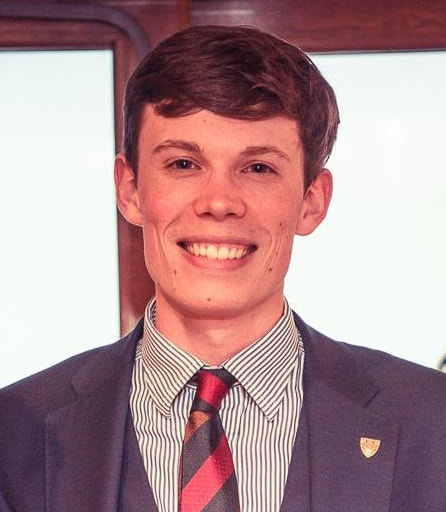|
Access to finance is important for three of the Fundamental Needs identified by experts as crucial for well-rounded human health and happiness; Contribution and Creation, Autonomy, and Self-fulfilment. This importance makes the thorough investigation of how it works in the post conflict space critically important for the experience of people living in this environment. Post Conflict situations have specific characteristics that prevent the functioning of the international financial system, such as a lack of physical security and poor governance. These are barriers to post conflict communities’ access to the ‘normal’ financial system. In response they use networks like Hawala. However, and also due to their situation in the post conflict, these informal networks are often securitised and attacks, leaving normal people without access to financial tools which could assist in rebuilding and developing.
Financial services are key to the normal functioning of any economy. Banks play an important role in assigning capital to where it is most valued. In the Western world, if one wants to start a business it is in theory possible to go to a bank and apply for a business loan. Infrastructure, from bridges to broadband connections, is built using finance. Owning a business is also key to aspirations everywhere; a key to a better life, and a driver of sustainable, locally-owned development in the community more widely. Money transfers from diaspora community members have also been described as a lifeline for families in poor countries. Financial services in all their forms are thus clearly crucial for both everyday survival and future development in normal communities. In a post conflict situation, these ‘typical’ mechanisms of monetary transfer are rendered obsolete by the dynamics of conflict. Exactly what is meant by ‘post conflict’ is a matter of debate but in general these situations are characterised by a high degree of physical insecurity, displaced populations, distinct forms of political economy that often incentivise violence, and sheer uncertainty. Physical bank branches come under attack. The airwaves become another front in modern war, and are often either shut down or overloaded as a result. Either way efficient, and crucially verifiable, communication is made much harder. ATMs are drained of cash, and often the currency itself inflates beyond all reasonable use. Additionally, the credit checks that many banks impose on their customers are impossible to conduct in the post conflict. Records are destroyed, identities are hard to verify, and the models of forecasting risk and profit used by banks are unsuitable to assessing the risks and needs of a post conflict community. Additionally, formal banking services are often too expensive or simply difficult to physically access to be extensively used by post conflict communities. For all of these reasons, the first to flee modern combat zones and often the slowest to return are financial institutions. There is an alternative banking system that has been in use across the world, having originated in South Asia. The Hawala System is a way of transferring money without requiring the physical transfer of assets. It has been estimated by UN bodies that some 90% of Afghanistan’s financial transactions were through the Hawala networks. This system received a lot of attention toward the end of the intervention in Afghanistan as a way of transferring funds that flew under the radar of counter-terrorist financing legislation. It works because Hawala Dealers or Hawaladars form an informal network among themselves. This system works through trust as well as informal communication and bookkeeping. If person A wants to send money to person B, they will approach a Hawaladar. They will tell the first Hawaladar the amount they want to transfer as well as the details of the recipient, and arrange a password or other verbal key. The first Hawaladar would get in touch with a Hawaladar in recipient B’s area and pass on these details. On correctly giving the password, recipient B receives the money, minus commission. The Hawala system and similar systems that fill the gaps left by the international system are also vulnerable to conflict and post conflict dynamics. The first way in which these systems fall apart is through their reliance on physical security. Without a bank, people must carry their money with them and keep it in their homes. In the context of a breakdown in physical security (such as that in Afghanistan) break ins and robbery can also become more prevalent and this can directly impact the willingness of Hawaladars to operate in an area, just like banks. Without stable community relationships there is no basis of trust for Hawaladars to rely on when deciding whether to trust that another can reimburse them for dispensed funds. In short, trust is much harder to achieve between transient populations, and to access the financial capital available through Hawaladars people need to have social capital in the form of trustworthy relationships. Equally, people who are on the move are unable to plan for the future, and investing in long-term projects takes second place to short term support. Distinct forms of political economy that often incentivise violence also arise in the post conflict, which can be boiled down to the lingering legitimacy of violence as a way of assigning economic rents. The post conflict is a difficult transition to manage - often the very ones who took power using violence are the ones incorporated into the post conflict governance apparatus. In Afghanistan, warlords from the Northern Alliance were rolled into the new government, with notable examples including Atta Mohammed Noor. Individuals such as these blur the lines between legitimate and illegitimate power even more, and hinder the post conflict transition. Additionally, there are several concerns about the use of Hawala networks that have specific relevance to the post conflict space. First, one of the main financial principles that underpins the Western financial system that Hawala skirts is the principle of ‘Know Your Customer’ (KYC). KYC is a regulatory process of ensuring the identity of customers, which performs some important functions related to the customer, but also protects the financial institution in some regulatory contexts. Another thing that sets Western-style financial institutions apart from traditional systems is the greater anti-money laundering burden that falls on them. Without this, Hawala systems often fall prey to suspicion, and end up problematised. This can lead to either their conscious marginalisation, or even to likely conduits to them being blocked by international financial crime bodies. Finally, and most importantly when relating to the Hawala system in Afghanistan in particular, is the international priority of eliminating terrorist financing. Hawala has been under the microscope in the latter years of the intervention in Afghanistan for its role in supporting illicit trade in narcotics and smuggling. While undoubtedly grounded in the truth, this also prevents licit use of the same system. All of this leaves post conflict communities without even a stopgap ability to access finance beyond what they happen to have in their pockets at a given time. To conclude, this piece has tried to show how post conflict communities are different from peaceful ones in their financial needs, and their access to finance more generally. It has traced how these communities are first excluded from the ‘normal’ international finance system of banks, and how the informal workarounds (such as Hawala networks) that have thrived because of this exclusion have been targeted and securitised by the War on Terror. This again shows the importance of an intersectional approach in highlighting how financial exclusion is compounded in new ways by the post conflict setting.
0 Comments
|
Author
Hugh is a Master's student in Conflict, Security and Development at the War Studies Department, King's College, London. He researched and wrote this article as part of the BizGees & War Studies Department Internship programme.
|

 RSS Feed
RSS Feed

